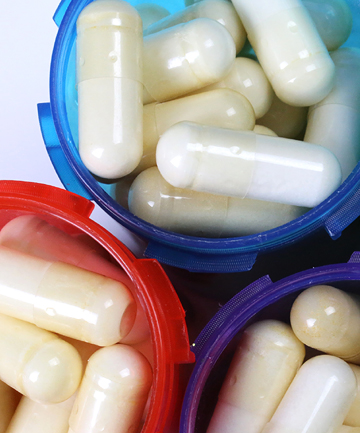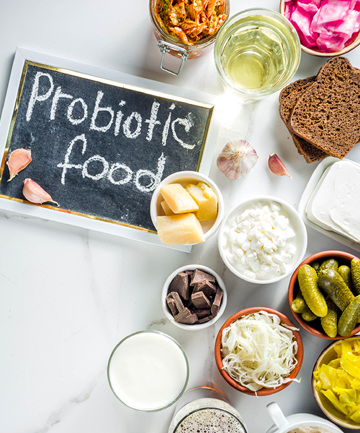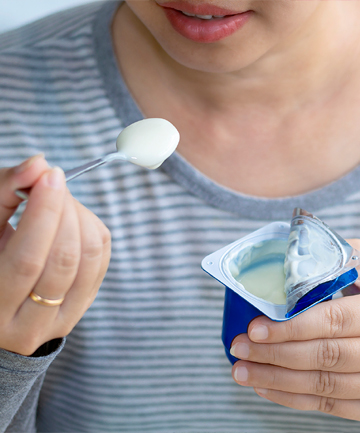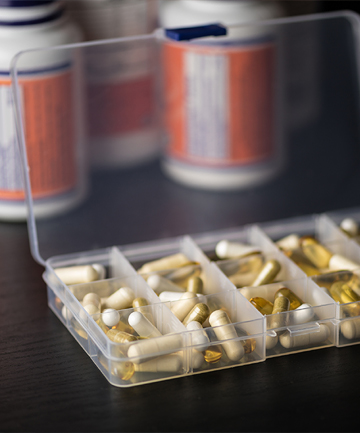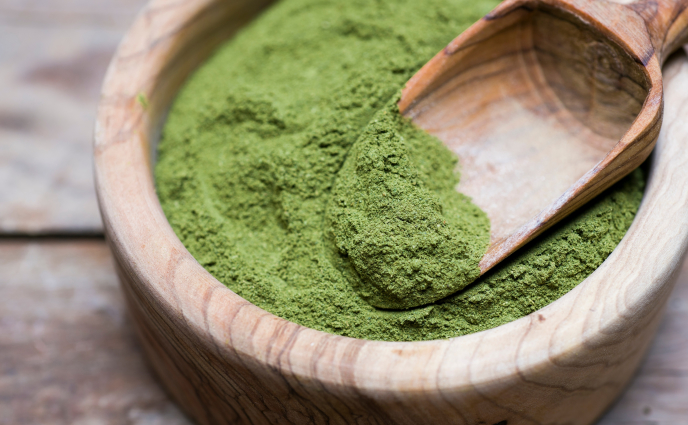Gut talk might not be particularly sexy, but it's certainly on the tip of seemingly every wellness expert's tongue. And there are some very good reasons for this. We now know the gut to be our "second brain" — meaning, keeping it healthy is important for more than just digestion. In fact, it works to keep everything from immunity to inflammation to brain health in check. And major key to a healthy gut? Probiotics, aka gut-friendly bacteria.
When it comes to probiotics, there's a lot of ground to cover — how they function, how they benefit your gut, how to incorporate them into your diet, how to pick out the best supplements — so we talked to top health experts and gastroenterologists to get all the details. Keep reading to learn everything you need to know about probiotics.
Image via Douglas Sacha/Moment/Getty
"Probiotics are designed to restore the balance between 'good' and 'bad' bacteria," explains holistic health counselor Kerri Axelrod. "Our modern diets of ultra-processed foods and high-stress lifestyles can lead to imbalanced gut bacteria," which is very problematic.
Gastroenterologist Dr. M. Nuri Kalkay goes on to explain that healthy gut bacteria provide very important biological functions for us, including protecting our intestine against the invasion of disease-causing bacteria. "Probiotics also help digest hard-to-digest foods like vegetable fibers and complex carbohydrates like lactose, they produce many vitamins like vitamin K and they stimulate our immune system and regulate our immune reaction thereby preventing allergic autoimmune diseases."
Image via AH86/iStock/Getty Images Plus/Getty
Unfortunately, if you're consuming the standard American diet you're likely not getting enough probiotics, which are found in fermented foods like yogurt, sauerkraut, pickles and kombucha.
But that's not where the story ends: Probiotics need to eat, too — they need prebiotics (a type of fiber) to thrive, meaning that it's equally as important to eat a fiber-rich diet. Good sources of fiber include whole grains, beans, legumes, fruits and vegetables. The goal is 25-35 grams of fiber a day.
Image via Rimma_Bondarenko/iStock/Getty Images Plus/Getty
"Some of the signs you might not be getting enough pre/probiotics in your diet include experiencing gas, bloating, constipation or diarrhea," says Dr. Saman Faramarzi. "Also, gut issues don't always manifest as direct gastrointestinal symptoms, sometimes they show up as headaches, acne and joint pain and if ignored for long enough can turn into chronic illnesses."
Image via pong-photo9/iStock/Getty Images Plus/Getty
While it's important to have a food-first approach, supplements can help. The only drawback? Well, probiotics are sold as dietary supplements, which don't have to go through a rigorous testing or approval process, so the health claims are not guaranteed.
"Some brands label the dosage of probiotics, but it only states the amount 'at time of manufacturing,' not when the consumer purchased or takes it," says Rachel Daniels, MS, RD Sr. and the director of nutrition at Virtual Health Partners. "Probiotics are fragile and to stay alive they need to be at a certain temperature, humidity and level of light. Companies cannot control all of these factors from the time of manufacturing to transport, to the time of sale, so it is difficult to guarantee how many bacteria are alive once you open your container."
Image via emiliozv/iStock/Getty Images Plus/Getty


